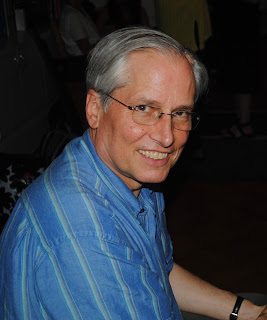Deep Cut: Jeremy Travis
Berman: One part of your career that I know less well is the time you spent working for Mayor Ed Koch. What did you do for Koch?
Travis: I was a special advisor to the mayor, brought onto his staff in his third term.
Berman: Not always the best term…
Travis: Yes, the third term is typically thought of as the least productive of a three-term mayor. At the time, Koch said he wanted to bring in fresh blood and new ideas. I was part of that. I did not have a portfolio. The understanding was that I would work on issues that were complicated. So those included a great list of topics: charter revision, immigration reform, education reform, race relations. We did a total revamp of the Human Rights Commission, which I'm very proud of. So it was an eclectic mix of topics. But the joy of working for Ed Koch was working for Ed Koch -- watching him do his work, being part of his inner circle.
Berman: How did his personality behind closed doors differ, if at all, from his public persona?
Travis: It didn't. I think that's why New Yorkers loved him so much. He was who he was. He always asked, “How am I doing?” I think he was just a great mayor. I'm a big admirer of his. I learned a lot from him, particularly in terms of fortitude. He had great strength in his convictions. He assembled great talent. A lot of people who worked for Koch are still close colleagues of mine. It was a great team. Those three years working for him were just electric.
Berman: So then you go to work for the NYPD?
Travis: No, there was an interstitial period when I worked for now-Majority Leader Chuck Schumer.
Berman: What were you doing for him?
Travis: Then-Congressman Schumer was rising through the ranks. He asked to be the chair of the criminal justice subcommittee of the Judiciary Committee. This was in 1990 when crime was rising. Chuck very wisely said, “How can I have a voice on crime policy?” He looked around for somebody to be his chief counsel. I was available because Koch had lost his bid for a fourth term. I signed on to the Schumer team and was immediately very unhappy.
Berman: Why?
Travis: The pace of Congress did not meet my preferred tempo. I couldn't move things quickly. I was commuting back and forth, between New York and Washington. It was tough on my wife and kids. So I did a U-turn and came back to join the new administration at the police department under Lee Brown. It was a chance to get back into policing. (I had been special counsel to Police Commissioner Ben Ward before going to City Hall.) I became the deputy commissioner for legal matters at the NYPD.
...
Berman: You talked about the generation coming up. I want to talk about the generation that just passed. At the risk of being maudlin, in the last couple of years, we've seen Joe Hynes, Judith Kaye, Herb Sturz, Bob Keating, Herman Goldstein, George Kelling, Michael Smith and a number of other important criminal justice figures pass away. These were all important people to me in way or another. I also know that two other important people for you recently passed: Ruth Bader Ginsburg and Janet Reno. I'm wondering whether there are one or two of these figures that you find yourself wishing we could hear from right now as we try to make sense of the world?
Travis: Of the people that you listed, I had the incredible privilege of working directly for Reno, Ginsburg, and Sturz. I consider the three of them to be very important figures in my life. They literally helped me to become who I am today. I would also add Ben Ward to that list, although he passed away a few years ago. I think about all of them from time to time.
With Janet Reno, her watchword was to do the right thing. So many times, in so many meetings she said, “Do the right thing.” That sense of integrity, and having a backbone, I hear that voice in my head every once in a while.
Justice Ginsburg, in her opinions, in her work as a litigator, and in her public discussions, always foregrounded the people at the center of any given controversy. She would always talk about the person who came to the court asking for justice. For me, that's a reminder, as we get lost in some of the theoretical or empirical or historical questions, to just remember that it's always about the people.
Ben Ward, I put on my list as being one of the great public servants. He was larger than life, willing to take risks, and willing to be outspoken. He was willing to buck conventional wisdom. But he really cared about the role of the police in our city. In particular, the relationship between the police and the black community was his life's work.
Then finally, Herb. Herb was, in many ways, closest to me for the longest period of time, as friend and mentor and inspiration. Going back to my time at Vera, and up until a couple of weeks before his death, we were in close contact. I always valued his wisdom and his brilliance as a social entrepreneur. He was always able to think about the next big idea, of what might be possible and how to respond to some way that the world was doing harm to people. He always wanted to test new ideas.
All of these people are very much part of my history and very much part of the way that I think about things.


